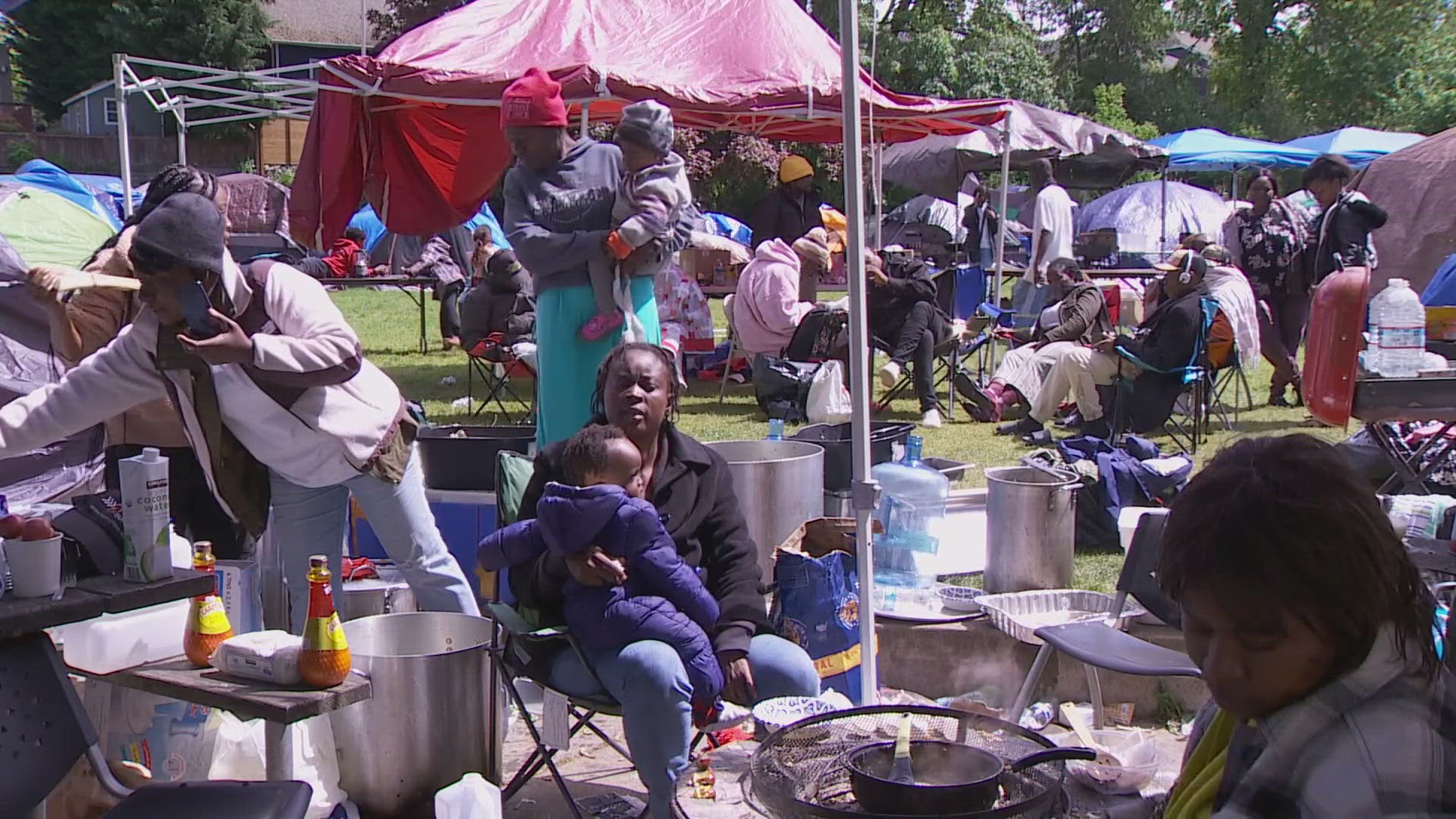SEATTLE — Asylum seekers have been living at Powell Barnett Park in Seattle's Leschi community for a week.
Community members said the encampment has become a public health concern and are demanding action from Seattle's mayor.
KING 5 spoke with three women who are from Venezuela and had been living at the park for a week.
The women said they needed shelter and clothes for the cold and that some people were sick.
"Every day they see a new family come, but they don't have the resources to help," one woman told KING 5 through a translator.
Asylum seekers from Venezuela and the Republic of Congo ended up living in tents at Powell Barnett Park after being moved from a church in Tukwila then to a hotel in Kent until funding from King County and a private donor ran out.
"We feel for these people, but there's got to be a better way," said Eric Barnett, grandson of Powell Barnett.
Monday afternoon, neighbors and the grandchildren of the park's namesake, Powell Barnett, held a news conference.
"This is a cry out to the mayor's office and city council to step up and do something. If you want to be a sanctuary state, do your job," Powell Barnett said.
"The dysfunction of our leadership is an embarrassment and disgrace. We call on them to move those in tents out of the park and into shelters and restore the park so it is clean, safe and healthy," said Maisha Barnett, granddaughter of Powell Barnett.
Community members said the city needs to respond immediately and that the park has become unsanitary. Health concerns include a lack of bathrooms—there are only two in the park. Neighbors want the city to provide resources like portable restrooms, sinks and frequent garbage pick-up.
"The people in this park can not wait on nonprofits, state and local officials to respond. The park itself can not suffer the biohazard of human waste, garbage, and lack of sanitation facilities another week. The time of passing the buck is over. The time to act is now," said Maisha Barnett.
The City of Seattle said over the weekend, more than 150 people transitioned from the park to shelter and housing. Forty-five families have been moved into hotel rooms paid for by the City of Seattle. They will be able to stay in those rooms until July 1. As of Tuesday afternoon, about 35 people, including mutual aid workers, remain at the park but will need to leave by 8 a.m. Thursday.
The city said the parks department has been onsite daily to address trash pick up and clean the restrooms twice a day.
Crews will remove trash twice daily and clean the restrooms twice to three times daily to maintain the facility.
Once the park is clear, the city said the parks department will do any necessary maintenance and restoration to restore it to its original state.
A spokesperson for the mayor's office said, "This humanitarian crisis cannot be solved by the City of Seattle alone and requires a statewide, systemic response plan to avoid the continued cycling of migrant families and asylum seekers in and out of short-term hotel stays and public spaces."
King County awarded four nonprofits $2 million in grants to help asylum seekers. The organizations will determine how to deploy funding and implement services. Currently, King County is working with organizations to finalize contracts.
The Washington Legislature increased the budget by $32 million to help new arrivals to the state. However, that money will not be available until this summer.

